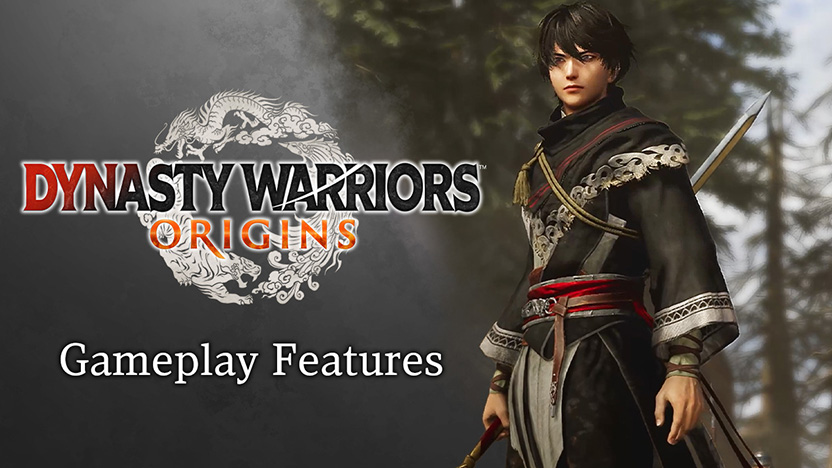The Dynasty Warriors series, long celebrated for its “Musou” style of gameplay, continues to evolve with its latest installment, Dynasty Warriors: Origins. While the franchise has traditionally focused on large-scale battles with countless enemies, Origins seeks to refine the experience by emphasizing single-player RPG mechanics and streamlined progression systems, offering both long-time fans and newcomers a fresh perspective on the series.
Setting the Stage: Ancient China and the Three Kingdoms Era
Dynasty Warriors: Origins is set in ancient China during the Three Kingdoms period, following the story of an amnesiac protagonist known as the Guardian of Peace. Tasked with uniting a coalition militia to combat the notorious Yellow Turban bandits, players are thrown into a world of shifting alliances and chaotic battlefields.
Despite its ambitious setting, the narrative can feel confusing and inconsistent at times. The protagonist’s actions, often ruthlessly eliminating thousands of enemy soldiers, contrast sharply with the broader story, which attempts to explore political intrigue and factional conflict. Players can choose to align with different factions, resulting in diverse story routes, much like Fire Emblem: Three Houses, enhancing replayability for those willing to invest the time.
Each campaign can take over 30 hours to complete, with each route offering a unique ending. While this depth encourages hardcore fans to explore every story path, the repetitive pacing may overwhelm casual players, making it a game tailored primarily for dedicated Dynasty Warriors enthusiasts.
Characters and Replayability
While the story may falter, Dynasty Warriors: Origins introduces a variety of characters, particularly the commanders of the three primary factions. Side characters occasionally interact with the protagonist, reminiscent of Persona’s social elements, but their personalities are often too similar to leave a lasting impression.
The Guardian of Peace can wield multiple weapon types, including swords, lances, spears, and wheels, allowing for a flexible combat style. Players also have a companion system, where AI allies can temporarily take over to execute devastating attacks once the Swap Gauge fills up. This mechanic provides strategic depth and allows for dramatic turnarounds during challenging encounters, such as mini-boss battles, without relying on character switching.
Combat: Classic Musou with Modern Enhancements
True to its Musou roots, Origins retains the franchise’s power fantasy gameplay, enabling players to mow down hundreds of soldiers in real-time. Typical missions involve defeating enemy commanders while managing smaller objectives like capturing bases or escorting allies.
The game introduces RPG-style progression, letting players unlock Battle Arts—flashy combat abilities that enhance the fluidity and variety of engagements. AI-controlled armies also fight alongside the player and can receive direct commands, adding layers of strategy to large-scale skirmishes.
Origins features a dueling system, offering one-on-one battles against commanders or mini-bosses. This mode gives players control over critical encounters without distractions, offering a satisfying break from the chaos of massive battles. Players can guard enemy bases, lead charges, or strategically engage enemies, making combat feel dynamic and responsive.
Visuals and Audio
Dynasty Warriors: Origins stands out visually with its bright, diorama-like overworld maps, reminiscent of games like Unicorn Overlord and Fantasian. While not as photorealistic as titles like The Last of Us Part II, the charming character models and vibrant environments bring the Three Kingdoms era to life.
The audio design complements the visuals, featuring authentic English voice acting that respects Chinese character names, paired with a well-balanced soundtrack. Calm traditional Chinese melodies underscore the overworld exploration, while high-energy guitar-driven tracks ramp up the intensity of battles, keeping players engaged throughout.
Progression and Gameplay Mechanics
The progression system in Origins is intuitive and rewarding. Weapons gain proficiency through repeated use, unlocking new Battle Arts and skills over time. NPCs offer training objectives, such as defeating a set number of enemies with a specific weapon, which earn skill points for passive upgrades. This creates a natural, satisfying sense of growth for both characters and weapons.
The companion system, combined with diverse weapon mechanics, keeps combat engaging despite the franchise’s inherently repetitive structure. Even long-time players will find satisfaction in mastering different weapons and coordinating attacks with AI allies.
The Bottom Line
Dynasty Warriors: Origins represents a soft reboot for the series, blending classic Musou elements with modern RPG mechanics. Its strengths lie in stunning visuals, refined combat systems, and expansive replayability, particularly for those who enjoy experimenting with multiple factions and weapon types.
However, the game is not without flaws. The story can feel disjointed, and the character roster lacks depth, making it hard to connect with many supporting characters. Repetitive map objectives and mission structures may also test the patience of casual players.
For fans of large-scale, action-packed battles, Origins is a compelling addition to the Dynasty Warriors universe. Its release on January 17, 2025, with early access for Digital Deluxe Edition pre-orders starting January 14, 2025, offers both newcomers and veterans a chance to experience one of the franchise’s most polished entries to date.




